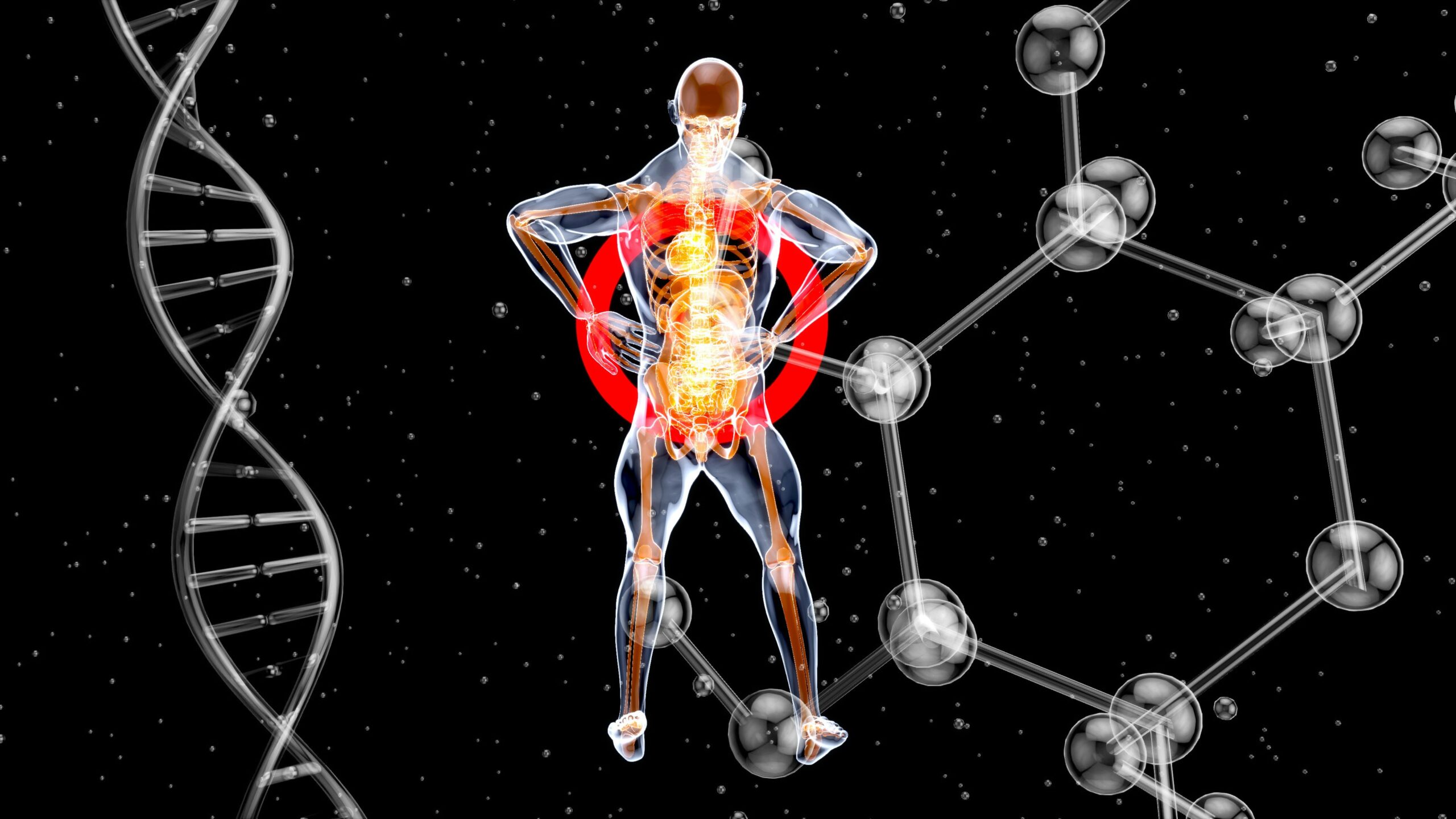A calorie is a unit used for measurement. From a scientific point of view, the unit measures the energy needed to increase the water temperature. In a nutritional context, the term kilocalorie is used, which is calculated per thousand calories.
Consuming food containing calories is significant for health. The human body's cells require a regular supply of the energy deposits needed to sustain life. Calories have various functions in the body. The breakdown of calories produces the energy released by these units of measurement, which is then used by the body for many processes. When the body immediately consumes kilocalories, they do not cause side effects.

In contrast, when calories are excess due to insufficient energy consumption, the kilocalories are deposited in the type of body fat for later use. Excessive calorie intake is detrimental to health. Too many calories are the requirement while simultaneously causing various complications without physical activity. Also, when insufficient kilocalories enter the body, a deficiency can negatively affect health. Foods can vary in the number of calories, and macronutrients provide various energy values. The diet's energy balance and the right calorie balance are essential for maintaining health. Please find out more about calories and their impact on the human body.
The primary function of calories is to provide the energy![]() required by the body. Energy in the type of heat sustains the proper functioning of the organism. Energy from food is digested and absorbed from the digestive tract. Calories from food are used to meet the needs of the body, which include the following functions:
required by the body. Energy in the type of heat sustains the proper functioning of the organism. Energy from food is digested and absorbed from the digestive tract. Calories from food are used to meet the needs of the body, which include the following functions:
Physico-chemical studies report that the body requires certain kilocalories to synthesize protein from food. However, protein synthesis requires different sources of calories, preferably carbohydrates and fats. Macronutrient synthesis aims to produce proteins for the body's cells. Proteins are essential in carrying out chemical reactions and forming structures. They also act as signaling molecules and more. This process is strongly linked to muscle, affecting muscle growth.
Being indoors at too high or too low a temperature burns calories. This is related to the function of calories in regulating body temperature. The body needs more energy to heat or cool itself, hence the greater burning of stored body fat in extreme conditions. Also, in the case of a fever, the body uses more energy to fight the illness or infection, thus increasing energy expenditure.
The amount of blood the heart pumps into the blood vessels in one minute is the minute volume. This process also requires calories. In the resting state, the body requires fewer calories, whereas when the heart increases its work during sports and physical activity, the need for energy increases. Therefore, carrying out a workout at the right pace, about your heart rate level, allows you to burn calories better.

The energy provided by calories is also needed for a person to breathe. Thus, kilocalories are so crucial for the body. Breathing alone burns calories but is a small amount in the resting state. Physical activity significantly increases the energy burn values. In addition, during respiration, a particular chemical compound is formed in the body, which is the primary energy carrier in all cells.
Calories are needed for the body's muscles to function correctly. Muscle work requires energy, so physical activity must be fuelled by the calories consumed. Muscles require a large amount of energy to perform a contraction. It is also worth mentioning that, with the proper training, energy is not deposited in fat tissue, but the energy surplus results in the deposition of resources in the form of skeletal muscle.
Biochemical reactions and energy metabolism need calories. People have various organisms, so metabolism may require different amounts of energy. A minimum intake tailored to the body's needs is essential to sustain all critical bodily processes.
The kilocalories (kcal) provided by food are essential to keep the body in good condition. However, the amount of calories supplied can vary, depending on individual needs. In patients who consume more energy than their needs for metabolism and physical activity, the excess caloric energy is stored, mainly in the type of body fat. Energy balance refers to the energy intake used by the body for various functions or to create energy stores. The balance can be positive, resulting in storage, or negative, resulting in weight loss. Some conditions require a specific type of energy balance. It is also worth mentioning that different factors influence weight loss.

Calculating how many calories a person needs per day is possible based on several data. Height, weight, age, and activity level are relevant. Children have a different, lower calorie requirement than adults. The calorie requirement for adult women who want to keep their weight constant is 2,000 calories![]() per day, while for adult men, the figure is 2,500 calories
per day, while for adult men, the figure is 2,500 calories![]() . Note, however, that the exact values may differ depending on the factors above. The types of prevalence of various macronutrients in the diet are also important, as the amount of calories consumed can vary, depending on whether you eat more protein, fat, or carbohydrates and from which sources you obtain these nutrients.
. Note, however, that the exact values may differ depending on the factors above. The types of prevalence of various macronutrients in the diet are also important, as the amount of calories consumed can vary, depending on whether you eat more protein, fat, or carbohydrates and from which sources you obtain these nutrients.
A negative calorie balance is associated with weight loss because the body draws the required energy from fat stores. Many people, therefore, choose to reduce their energy intake in meals to achieve rapid weight loss. A calorie deficit is, thus, a standard procedure for people wishing to lose weight; however, a low-calorie diet conducted carelessly can cause various health problems. For example, the deficient calorie diet (VLCD)![]() , a very restrictive dietary pattern, can be used effectively in specific cases. However, undertaking this type of diet comes with risks. The following conditions and diseases are associated with calorie deficiency:
, a very restrictive dietary pattern, can be used effectively in specific cases. However, undertaking this type of diet comes with risks. The following conditions and diseases are associated with calorie deficiency:
Prolonged and severe caloric deficiency causes a state of malnutrition, which is associated with several complications. Most mainly, malnutrition is associated with depleted muscle mass and weakened bones. Excessive weight loss results in motor weakness, and malnutrition can result in severe cachexia associated with chronic protein and energy deficiency. It is worth noting that malnutrition is not necessarily related to physical appearance. Even overweight people can experience this condition. Malabsorption![]() disorders can also be a cause of malnutrition, so long-term malnutrition in patients should also be diagnosed for it.
disorders can also be a cause of malnutrition, so long-term malnutrition in patients should also be diagnosed for it.

Eating less can be associated with an insufficient supply of essential nutrients for the body. Micronutrient and electrolyte deficiencies can affect many body areas by disrupting various essential functions. Micronutrient and micronutrient deficiencies also increase the risk of certain diseases.
Insufficient energy weakens the functioning of many body systems. Severe malnutrition can reduce heart muscle mass and weaken cardiorespiratory function. The kidneys, pancreas, and intestines can also be impaired, as can the function of vital internal organs. Malnutrition can contribute to irreversible changes in the body.
Too few calories can cause an energy deficit, weakening the immune system. A low-calorie diet, which lacks nutrients and energy, reduces immunity. In addition, a low protein supply can decrease antibody production. Reduced immunity is associated with several problems, such as patients being more vulnerable to disease and infection. It is noted that it is associated with a higher risk of cancer and delayed wound healing. Therefore, healthy and proper nutrition is key to the smooth functioning of the immune system.
Inadequate caloric supply also affects mental health. Patients who consume too little energy notice significant weakness and problems with concentration and memory. Low-fat diets, in particular, negatively affect brain function and the functioning of the nervous system. The brain cannot store energy and needs to be supplied continuously in large quantities. In addition to the problems mentioned, too few calories in the diet can cause apathy, anxiety![]() , and depressive disorders
, and depressive disorders![]() .
.
Anorexia is also a significant disorder associated with caloric deficiency. Patients who pay too much attention to body image can perpetuate a constant aversion to food and deliberate meal avoidance that causes extreme malnutrition. Obsessive calorie counting and fear of gaining weight characterize patients diagnosed with anorexia. Psychiatric disorders may, therefore, be a cause or consequence of calorie deficiency.

Too extreme a caloric fluctuation is detrimental, so excess calories can cause much damage. A positive calorie balance causes the accumulation of fat mass, which, for the body, represents a store of unused, stored energy. Statistics show that weight gain in various populations has increased in recent years. It may be related to greater access to unhealthy, processed foods and a Western diet high in calories and poor in particular nutrients. It is, therefore, essential to take care of the right amount of calories, as excess calories can lead to the following problems:
Excessive calorie intake about our needs, at the same time as lack of physical activity, causes overweight and obesity. Obesity is recognized as a disease and is a major global problem. Fat tissue accumulates excessively in patients when a positive energy balance is maintained long-term. Stored energy in excessive amounts is not beneficial. The fat cells are metabolically active, which causes an imbalance of various processes. Chronic inflammation can develop, and patients are at risk of many diseases. In addition to this, people with obesity can develop osteoarthritis, which is related to the burden of excessive weight.

People who are obese or overweight are at risk of various conditions and diseases. Among others, type 2 diabetes![]() is associated with an increased calorie intake. Excess body fat causes increased insulin resistance, which hinders the proper processing of glucose and causes blood sugar levels to rise. In addition to this, excess body weight can cause various cardiovascular problems and increase the risk of stroke, which can be associated with increased blood pressure
is associated with an increased calorie intake. Excess body fat causes increased insulin resistance, which hinders the proper processing of glucose and causes blood sugar levels to rise. In addition to this, excess body weight can cause various cardiovascular problems and increase the risk of stroke, which can be associated with increased blood pressure![]() . A higher risk of liver disease and gallbladder disease in obese people is also noted. Obesity also increases the possibility of many types of cancer.
. A higher risk of liver disease and gallbladder disease in obese people is also noted. Obesity also increases the possibility of many types of cancer.
Excess calories leading to obesity can cause breathing problems in patients. Sleep apnea![]() is among such issues. The condition refers to a shallowing of breathing during sleep. Being overweight causes fat deposits in the neck. Throat fat can block the upper airway during sleep when the airway is already relaxed. In addition, increased abdominal volume causes elevation of the diaphragm, which reduces the vital capacity of the lungs. Therefore, people with a higher body weight find breathing more difficult.
is among such issues. The condition refers to a shallowing of breathing during sleep. Being overweight causes fat deposits in the neck. Throat fat can block the upper airway during sleep when the airway is already relaxed. In addition, increased abdominal volume causes elevation of the diaphragm, which reduces the vital capacity of the lungs. Therefore, people with a higher body weight find breathing more difficult.
Obese people may also experience fertility problems. Excessive body weight in men causes disturbances in sperm production and impaired sperm quality. It can hinder fertilization and reduce the chances of the embryo lasting. Obesity can also adversely affect a woman's fertility by impairing the development of ovarian follicles. Patients may also experience qualitative and quantitative defects in germ cell maturation and problems with embryo implantation.
Individuals whose excess calories have contributed to weight gain and altered appearance may be at risk of various psychological problems. A negative self-image and lack of acceptance of one's body can cause depression and anxiety disorders. A tendency towards low self-esteem![]() is noted in obese people. Due to stress, such patients may find temporary relief in eating, thus looping the wheel of the problem.
is noted in obese people. Due to stress, such patients may find temporary relief in eating, thus looping the wheel of the problem.
A calorie is the energy associated with raising the water temperature, but the term is often used in a dietary context. A kilocalorie represents the energy value of food, which is very important for the proper functioning of the body. Energy extracted from food helps many processes, such as protein synthesis and metabolism, or is stored in the type of body fat. Calories are also crucial for muscle growth. Calorie requirements can vary depending on factors such as age, gender, and the amount of physical activity.
A negative energy balance can lead to a calorie deficit, which results in malnutrition, among other things. An excess of calories is also not advisable where it is associated with obesity, which promotes the development of many different diseases. Suppose you want to maintain a stable body weight. In that case, it is necessary to match the right amount of calories in the diet to the body's requirements and take care of other aspects of a healthy lifestyle, such as regular physical activity.